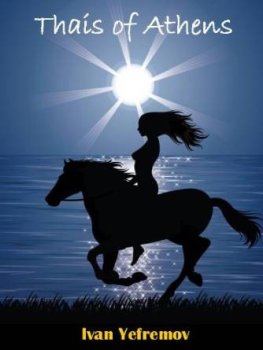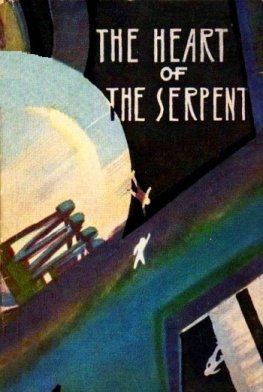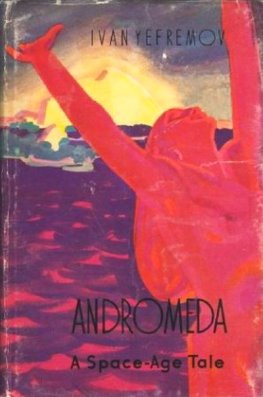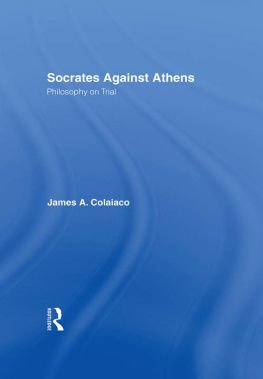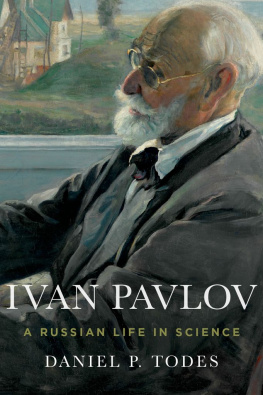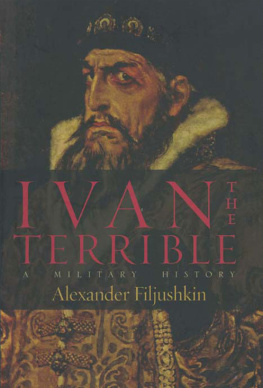Ivan Yefremov
Thais of Athens
Translated by Maria K.
Illustrations by Halina Boyko and Igor Shalito.
To my Mom for introducing me to this book. To all incredible women in my life who represent the living proof that our era can produce strong female characters.
Maria Kuroshchepova
Dedication
Contents
Readers Reference
Chapter One. Earth and Stars
Chapter Two. Egesikhoras Heroics
Chapter Three: Escape to the South
Chapter Four. The Power of Animal Gods
Chapter Five. The Muse of the Neit Temple
Chapter Six. The Thread of Laconian Fate
Chapter Seven: Hesionas Awakening
Chapter Eight: The Chestnut Pacer
Chapter Nine. Visiting Mother of Gods
Chapter Ten. Waters of the Euphrates
Chapter Eleven. The Doom of Persepolis
Chapter Twelve. The Heirs of Crete
Chapter Thirteen. Keoss Ritual
Chapter Fourteen. Wisdom of Eridu
Chapter Fifteen: Unfulfilled Dream
Chapter Sixteen. The Queen of Memphis
Chapter Seventeen. Aphrodite Ambologera
Epilogue
About the Author
About the Translator
Acknowledgments
I. All ancient Greek words and names, with a few exceptions, should be pronounced with an emphasis on a one-before-last syllable. In two syllable words and names, the emphasis is on the first syllable: Thais, Eris. The exceptions are, for the most part, of artificial origin they appear in Latinized words: goplit (from goplitos), Alexander (Alexandros), Menedem (Menedemos), Nearch (Nearchus), where Greek endings were removed.
II. Hellenic New Year occurs during the first full moon after the summer solstice, during the first ten days of July. The Olympic calendar begins from the first Olympiad (776 B. C.) with four years per each: the first year of the 75th Olympiad is 480 B. C. To convert the Olympic calendar to ours, one must remember that each Greek year corresponds to the second half of the same year in our system and the first half of the following year. One must multiply the number of Olympiads by 4, add the number of years of the current Olympiad minus one, and subtract the obtained number from 776, if the event occurs in the fall or winter, and from 775 if it occurs in spring or summer.
III. Greek months:
Summer
1. Hekatombeon (mid-July mid-August)
2. Metageytnion (August first half of September)
3. Boedromion (September first half of October)
Fall
4. Puanepsion (October first half of November)
5. Maymakterion (November first half of December)
6. Posideon (December first half of January)
Winter
7. Gamelion (January first half of February)
8. Antesterion (February first half of March)
9. Elafebolion (Mart second half of April)
Spring
10. Munikhion (April first half of May)
11. Targelion (May first half of June)
12. Skyrophorion (June first half of July)
IV. Some unit measures and currency.
Long stadium: 178 meters / 584 feet
Olympic stadium: 185 meters / 607 feet
Egyptian skhen (equal to Persian parsang): 30 stadiums, approximately 5 kilometers / 3.1 miles
plethor: 31 meters / 101.7 feet
orgy: 185 centimeters / 74.8 inches
pekis (elbow): 0.46 meter / 1.5 feet
podes (foot): 0.3 meter / 0.93 feet
palysta (palm): approximately 7 centimeters / 2.75 inches
epydama (equal to three palystas): 23 centimeters / 9 inches
condilos (equal to two dactyls fingers): approximately 4 centimeters / 1.57 inches.
Talant: a measure of weight approximately 26 kilograms / 57.32 pounds
Mina: 437 grams / 0.96 pounds
Currency units: talant 100 minas, mina 60 drachmas.
Popular Greek coins: silver didrachma (2 drachmas) equal to a gold Persian daric. Tetradrachm (four drachmas) with the image of Athenas own was the main Greek silver currency (gold went into circulation during the era of Alexander the Great, when the value of talant and drachma fell steeply).
Liquid measures khoes (jug) just over 3 liters 0.79 liquid gallons; cotile (small pot) approximately 0.3 liters just over 10 fluid ounces.
V. Greek greeting, Haire! (Rejoice!) corresponds to our Hello! When parting people said either Haire! or, when expecting a lengthy separation, Geliaine! (Be well!)
Chapter One. Earth and Stars
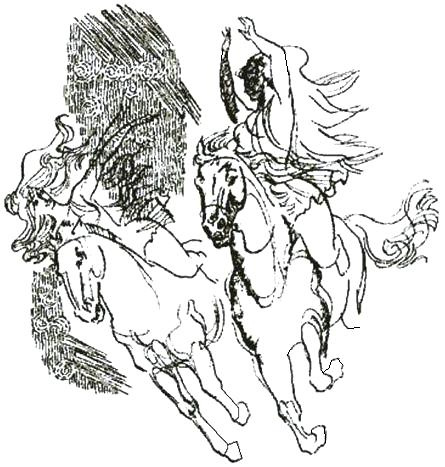
From out of the west came the wind, strengthening with every gust. Heavy waves, oily under the evening sky, thundered against the shore. Ptolemy was heavier than the others, his swimming skills less. He tired, especially when Cape Colnad no longer protected him against the wind, and struggled behind his friends, Nearchus, Alexander and Hephaestion. He didnt dare venture farther from the shore and yet he feared the white fountains of surf spraying off the gloomy dark rocks. His friends had abandoned him, and his anger at them sucked his strength further.
Nearchus, the quiet and taciturn Cretan, was an unbeatable swimmer. He had absolutely no fear of the storm and simply could not fathom the idea that crossing the Faleron Bay from one cape to the next, especially in this weather, was dangerous for the Macedonians, who werent quite as close to the sea. But Alexander and his faithful Athenian, Hephaestion, were both desperately stubborn, so they followed Nearchus and forgot their comrade, assuming him lost among the waves.
Poseidons bull, a huge wave, lifted Ptolemy on its horns, raising him high over the sea. From its height the Macedonian noticed a tiny lagoon nearby, surrounded by sharp boulders. At the sight of it, Ptolemy quit struggling. He lowered his tiring shoulders, covered his head with his arms and slipped under the wave, praying to Zeus the Protector to direct him into the gap between the rocks and keep him safe.
The wave scattered with a deafening roar, tossing him farther onto the sand than an ordinary wave would have. Temporarily blinded and deafened, Ptolemy wiggled and crawled a few pekises, carefully struggled to his knees, then finally stood. He rocked back and forth on unsteady legs and rubbed his aching head. The waves seemed to pummel him even here on earth.
He stood straighter, hearing a sound that did not belong. He listened carefully and heard a brief giggle needle through the noise of the surf. Ptolemy turned around so quickly that he lost his balance and fell to his knees again. The laughter rang again, quite nearby.
He looked up and saw a slender young girl of no great height standing before him. She had obviously just emerged from the sea. Water still sluiced down her smooth body, dark with a coppery tan, running in rivers off the mass of her raven black hair. The swimmer tipped her head to the side as she squeezed water out of her wavy tresses.
Ptolemy rose to his full height and set his feet firmly in the sand. He looked the girl straight in her brave and merry gray eyes, which appeared dark blue in reflection of the sea and the sky. Her long black lashes did not lower or flutter under the passionate and imperious gaze of the son of Lag, even though, at only twenty-four years of age, he was already a well known heartbreaker in Pella, the capital of Macedonia.
Ptolemy could not take his eyes off the girl. She had appeared from the foam and thunder of the sea like a goddess and her coppery face, gray eyes and raven black hair were unusual for an Athenian. Later he realized the girls copper skin meant she did not fear the sun, the rays of which were the bane of so many Athenian ladies of fashion. Athenian women tanned too thickly, turning purplish bronze like the Ethiopians. For that reason they avoided appearing outdoors without cover. But this girl was like the copper-bodied Circe, or one of the legendary daughters of Minos with blood of sunlight, and she stood before him with all the dignity of a priestess.

